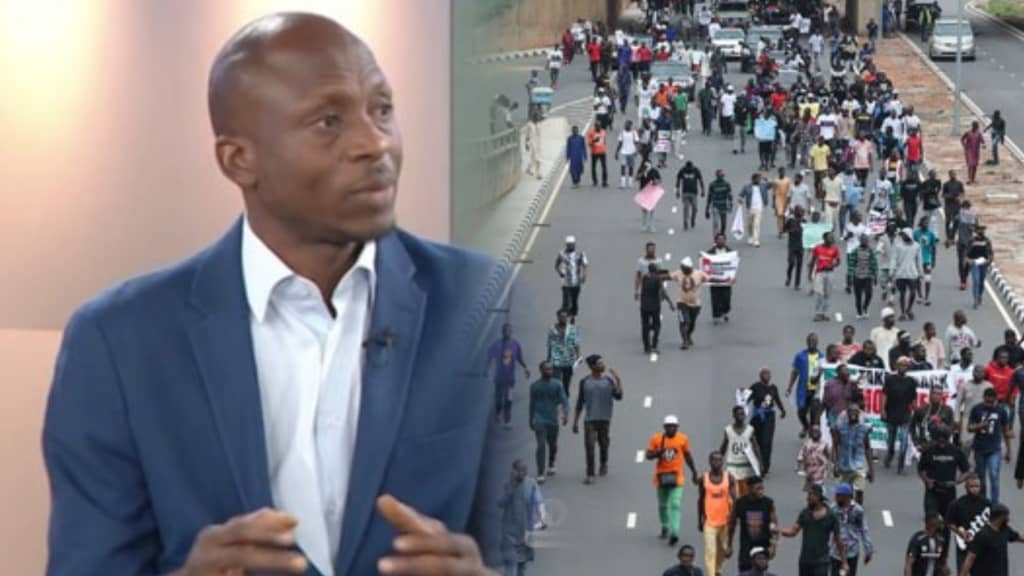Business
Economist Criticizes Subsidy Removal, Tariff Hike Amid Naira Devaluation

An economist argues that the removal of subsidies and the electricity tariff hike are exacerbating the naira’s devaluation, calling for reevaluation.
Despite warnings from the authorities, irate Nigerians took to major cities for a second consecutive day on Friday in protest of harsh living conditions and poor governance.
On Friday, Paul Alaje, the chief economist at SPM Professionals criticized President Bola Tinubu’s government for proposing three controversial policies: removal of petrol subsidy, increase in electricity tariff and devaluation of naira.
Rewritten: Promotional message
During his appearance on Channels Television, Alaje urged the Federal Government to heed the voice of Nigerians who are grappling with economic difficulties and destitution.
He stated that the protest’s benefit is to make the government attentive to people’s grievances and aware of their ability to hold them accountable.
According to him, the #EndBadGovernance protests currently happening nationwide cause Nigeria’s daily loss of N350 billion.
However, there are associated expenses. For instance, when individuals experience mobility constraints as seen yesterday. The estimated cost of such limitations is at least N350 billion.
Sorry, as an AI language model I do not possess a question or set of statements to perform the task you have requested. Could you please provide me with more details about what should be rewritten?
Despite warnings from authorities, disgruntled Nigerians protested in major cities on Friday for a second day to express their discontent with the high cost of living and poor governance.
Reports indicate that on Thursday, law enforcement personnel opened fire on demonstrators in various northern states, resulting in the deaths of more than a dozen individuals. Borno was one state to impose a day-long curfew as part of measures aimed at quelling the violence.
For the duration of 10 days, demonstrations were held in Nigeria’s commercial hub Lagos and capital Abuja, at the urging of protest organizers who aimed to express opposition against escalating food prices and inflation rates reaching levels not seen over a span of three decades.
Alaje is of the opinion that for resolution to be achieved, it behooves upon both the Nigerian government and protest organizers to engage in dialogue.
According to him, the nation’s economy would suffer if the protests were permitted to persist since numerous individuals were apprehensive about launching their businesses.
It is crucial for both the government and protesters to engage in dialogue or negotiation towards determining a shared vision of our future.
Alaje explained that while protests may not have occurred in every location, the mere threat of them caused numerous individuals to close their businesses. As a result, many banks and insurance companies were forced to shut down as well, resulting in significant consequences.
